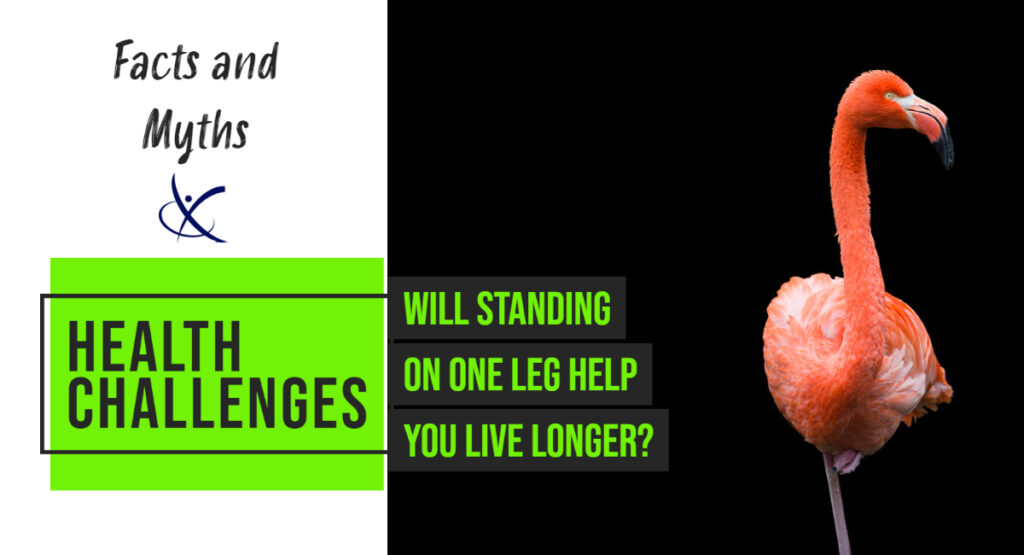Will Standing on One Leg Help You Live Longer?
Health Challenge Myths and Facts
If you can’t balance on one leg for 10 seconds then your risk of dying within the next ten years increases drastically…at least that’s what some news agencies are reporting. Despite what you might see occasionally in the headlines, your life does not hang in the balance between some random balance test or another physical challenge. Unfortunately, some individuals are led to believe an obscure task may predict their mortality but I assure you that health is not as complicated as Steve Martin’s sobriety test in “The Man with Two Brains.” (side note, you should watch that clip if you enjoy classic Steve Martin). I don’t want to give much credence to these wild claims, but instead, I’d rather unpack them and tell you why your balance and grip strength matters.
Firstly, I hope everyone takes these wild claims about health metrics with a grain of salt. The real crux of the issue is that physical health, mobility, and independence play a role in predicting someone’s ability to be physically resilient to the world around them. The headlines talking about random physical feats are eye-catching but they are connecting about ten dots to reach their headline about why your risk of death increases by 50% if you can’t balance upside down and juggle oranges while gargling Ritchie Valens’ “La Bamba” blindfolded. As fun as that may sound, please don’t try it in order to live longer. Instead, prioritize your overall physical well-being to give the grim reaper a run for his money.
So why do these “tests” gain traction? Because they can give us useful information. Balancing on one leg, grip strength, squatting your body weight, and getting up off of the floor unassisted are all physical tasks that have been associated with better or poorer mortality. Why? Well, I can promise you that if you cannot balance for ten seconds you won’t explode randomly. And if you can’t get up off of the floor without assistance that doesn’t mean you’re going to crumble into a pile of mush next week. Instead, these tests share one thing in common: they can give us a snapshot of your current physical health and resiliency. There is truth in the fact that physical well-being and physical independence lead to a longer life span. Greater values of lean muscle tissue are associated with longevity and decreased risk of hospitalizations and subsequent health complications in the aging population. This is why the headlines get reported. If you can have X grip strength, can balance on one leg easily, and can get up off of the floor relatively easily then there is a good chance your body in general has a good benchmark of physical health and you probably won’t fall victim to a stumble or other physical challenge in your day to day activity.
It is less about your grip strength and more about how much lean muscle tissue you have in general, and are your joints healthy and mobile enough to move yourself from extreme positions into safer and more favorable ones. This is why we want to know how you feel about your current baseline of health and what challenges you face daily. It is usually straightforward enough to address these and improve your current condition and subsequent future self. An improved physical baseline can be the difference between being discharged from the hospital to go home independently and being wheelchair bound susceptible to pneumonia due to a fracture or poor balance.
The take-home is that you need to prioritize your physical health now, and not worry about random metrics and health myths. The better off you are now gives us a good idea of your capabilities later as you age. A greater amount of lean muscle tissue results in a better opportunity to stay mobile and maintain independence as well as remain physically resilient to physical obstacles such as stairs, chairs, and even falls. Don’t concern yourself with random challenges and instead prioritize overall physical health.
Happy Balancing!
